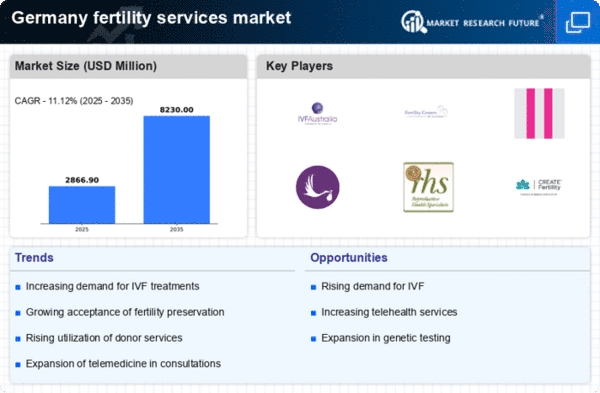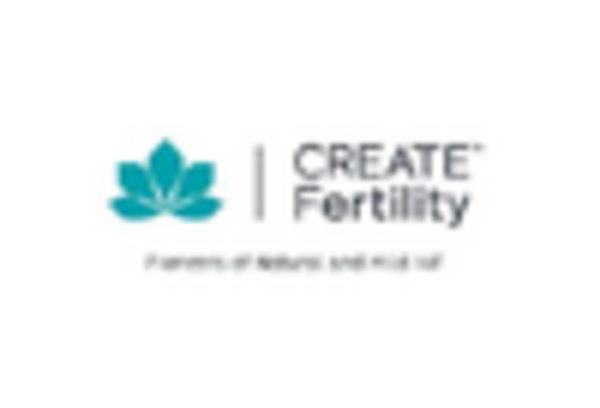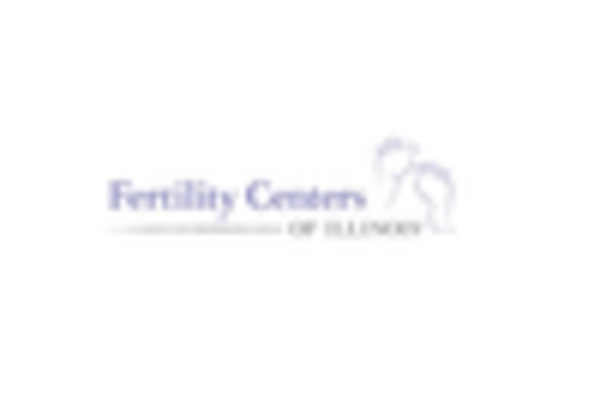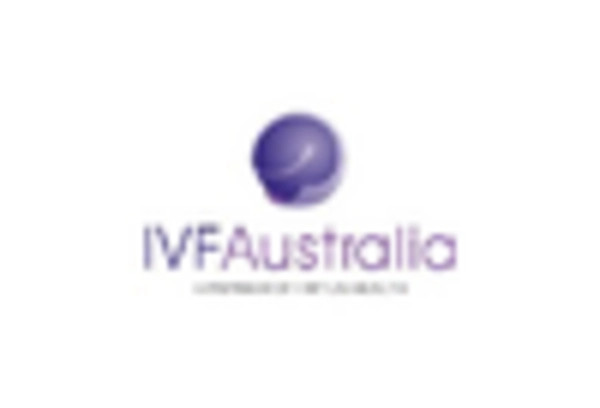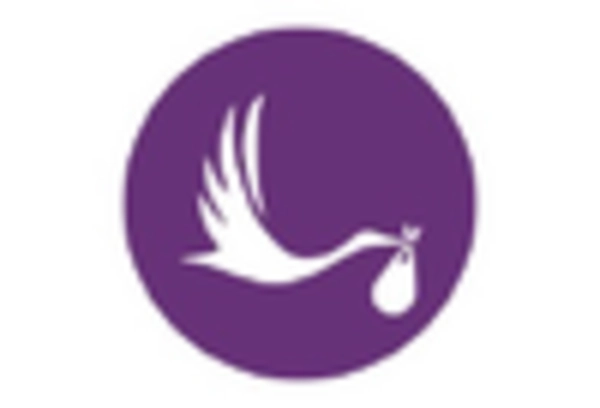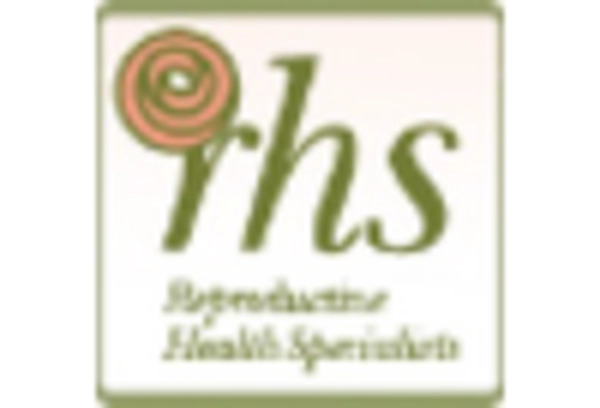Rising Infertility Rates
The fertility services market in Germany is experiencing growth due to rising infertility rates among couples. Recent data indicates that approximately 15% of couples in Germany face challenges in conceiving, which has led to an increased demand for fertility treatments. This trend is further exacerbated by lifestyle factors such as delayed childbearing, obesity, and environmental influences. As more individuals seek assistance, fertility clinics are expanding their services to accommodate this growing need. The increasing prevalence of infertility is likely to drive innovation and investment in the fertility services market, as providers strive to offer advanced reproductive technologies and personalized care.
Changing Societal Attitudes
Societal attitudes towards fertility treatments are evolving in Germany, contributing to the growth of the fertility services market. There is a growing acceptance of assisted reproductive technologies, which has led to increased awareness and willingness to seek help. As discussions around infertility become more mainstream, individuals are more likely to pursue treatment options without stigma. This cultural shift is reflected in the rising number of fertility consultations and treatments. The fertility services market is likely to benefit from this changing landscape, as more couples recognize the importance of seeking professional assistance in their family planning journeys.
Government Support and Funding
Government initiatives and funding are pivotal in influencing the fertility services market in Germany. The German government provides financial support for fertility treatments, which can alleviate the financial burden on couples seeking assistance. For instance, health insurance coverage for certain fertility treatments has increased, making services more accessible. This support is crucial, as the average cost of IVF can exceed €3,000 per cycle. By reducing out-of-pocket expenses, government policies are likely to encourage more couples to seek fertility services, thereby stimulating market growth. The ongoing commitment to supporting reproductive health is expected to have a lasting impact on the fertility services market.
Increased Awareness and Education
Awareness and education regarding fertility issues are critical drivers of the fertility services market in Germany. Educational campaigns and resources provided by healthcare professionals have improved public understanding of infertility and available treatment options. As individuals become more informed about their reproductive health, they are more likely to seek assistance when facing challenges. This increased awareness is evident in the rising number of fertility clinics and support groups across the country. The fertility services market is expected to continue expanding as education initiatives empower couples to take proactive steps in their family planning.
Advancements in Reproductive Technology
Technological advancements play a crucial role in shaping the fertility services market in Germany. Innovations such as in vitro fertilization (IVF), preimplantation genetic testing, and cryopreservation techniques have significantly improved success rates for couples seeking assistance. The introduction of new technologies has not only enhanced treatment outcomes but also expanded the range of services available. For instance, the success rate of IVF procedures in Germany has reached approximately 30%, encouraging more couples to pursue these options. As technology continues to evolve, the fertility services market is expected to witness further growth, driven by the demand for cutting-edge solutions.


